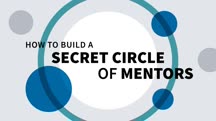Course catalog
Categories
Showing 581-600 of 1,450 items.
Handling Outsourcing Issues (226590)
To succeed in outsourcing environments, you must understand the common issues that plague outsourcing engagements and how to address them. Instructor Bob McGannon discusses the early warning signs of common issues, along with response alternatives. Issues can arise when the outsourcing contract becomes out of step with changing business needs. Bob points out common concerns with contract terms and how they can misalign with client business needs, service delivery issues, and managing personnel changes. He outlines productive ways to pursue the root cause of delivery problems and the difference between issues and disputes. The course concludes with an exercise on predicting outsourcing issues, based on a case study.
Note: This course was created by Bob McGannon. We are pleased to host this training in our library.
Note: This course was created by Bob McGannon. We are pleased to host this training in our library.
Hands-On Data Science: 1 Analyzing Employee Data with SQL (215965)
If you’re interested in working in the field of data or looking to advance in the field, you need a foundational knowledge of several key areas of data science. Not only that, you need to be able to demonstrate that knowledge. In this four-part, hands-on series, Ben Sullins shows how to build four distinct data science projects using SQL, Tableau, Python, and Spark. In this first installment, Ben uses SQL to analyze employee data, which is notoriously difficult to analyze given its structure. He breaks down the specific structure of employee data, and the best way to track this kind of information, then covers how you can start answering specific questions utilizing SQL. Finally, he gives advice on how to present your data, considering both your audience and the visuals you use, in order to convey your knowledge of the subject.
Note: This course was created by Free the Data Academy. We are pleased to host this training in our library.
Note: This course was created by Free the Data Academy. We are pleased to host this training in our library.
Hands-On Data Science: 2 Sales Dashboard with Tableau (215948)
If you’re interested in working in data or looking to advance in the field, you need a foundational knowledge of several key areas of data science. Not only that, you need to be able to demonstrate that knowledge. In this four-part series, Ben Sullins shows how to build four distinct data science projects using SQL, Tableau, Python, and Spark. In this second installment, Ben details the steps in building a sales dashboard with Tableau, the popular data visualization platform favored by organizations worldwide. Ben starts by breaking down the different aspects of Tableau, from working on a desktop, to sharing data over the web, to using the Tableau Public platform to publicly share your data visualizations. He then shows Tableau in action, looking at how it facilitates a deep dive into your data, before demonstrating how to build out an exploratory dashboard with your data. At the end of the course, you’ll be able to give a live demo of your data visualizations in Tableau Public on the web.
Note: This course was created by Free the Data Academy. We are pleased to host this training in our library.
Note: This course was created by Free the Data Academy. We are pleased to host this training in our library.
Hands-On Data Science: 3 Sales Analysis in Python (215931)
Python is a popular programming language in the field of data science, used for engineering and analytics, as well as data science itself. In this course, instructor Ben Sullins focuses on teaching you how to use Python using notebooks set up on the Jupyter platform. Ben walks through installing Jupyter using Anaconda, then shows you how to navigate the user interface and get Python running on a notebook in Jupyter. He covers how to import pandas, use pandas to explore sample data, and use data frames. Ben steps you through a number of functions, then concludes with some of the unique ways to present your data using Jupyter notebooks and Python.
Note: This course was created by Ben Sullins and Free the Data Academy. We are pleased to host this training in our library.
Note: This course was created by Ben Sullins and Free the Data Academy. We are pleased to host this training in our library.
Hands-On Data Science: 4 Services Analysis in Spark (215914)
Are you considering working in data science, and would you like to try out some popular tools first? This course focuses on what you can do with Apache Spark. Instructor Ben Sullins shows you how to set up Spark on Databricks. Ben goes over how to import your data and start working with it, using both Python and SQL languages in Spark. He steps through taking your project to the next level with some easy data visualizations. After explaining some tips and tricks to present your data using Spark, Ben concludes with some additional resources that you can use to pursue your data science journey.
Note: This course was created by Ben Sullins and Free the Data Academy. We are pleased to host this training in our library.
Note: This course was created by Ben Sullins and Free the Data Academy. We are pleased to host this training in our library.
Hands-On Mobile Prototyping for UX Designers (87190)
Design research and user requirements only get you so far. Sometimes you have to go hands on to create the user experience your mobile app users deserve. Explore the various methods for prototyping mobile applications, from analog to digital, and their place in the UX design process. Diane Cronenwett explains why prototyping is so important in UX, and compares the merits of low-fidelity methods like pen and paper to high-fidelity tools such as Photoshop. She then teaches various paper and digital prototyping methods, using tools such as stop-motion animation, Keynote, InVision, and Flinto. Using these prototyping techniques, you'll be able to refine your designs and get more targeted feedback from your users.
Hands-On SAP Business Rule Framework (BRF+) (232812)
If you’re looking to get up and running with BRF+ quickly, hands-on experience—in programming or any other skill—is a great way to learn. This course shows you how to create a BRF+ deliverable, covering everything from the requisite jargon and project preparation, to creating formulas, decision tables, functions, and rulesets. Throughout the course, the integration between ABAP code and BRF+ is detailed, providing you with a clearer understanding of how this tool can be applied. Completing the project in this hands-on course will help you learn how to translate business rules into visual documentation, discover how to maintain documentation within BRF+, and increase your confidence in doing more complex BRF+ projects going forward.
Note: This course was created by Michael Management. We are pleased to host this training in our library
Note: This course was created by Michael Management. We are pleased to host this training in our library
Having Powerful, Advanced Conversations (230891)
When you can have a meaningful, real conversation with someone, you can open minds, change opinions, and build a genuine connection. In this course, learn how to take your conversations to the next level. Dr. Michael Shermer covers the fundamental elements of good conversations, as well as how you can make your next conversation more impactful by asking interesting questions and using the Socratic method. He also discusses how to seek truth when speaking to someone, overcome negative emotions, and get past disagreements. Great conversations can change the world; after taking this course, you’ll be acquainted with best practices and techniques that can help you have powerful conversations of your own.
This course was created by Madecraft. We are pleased to host this training in our library.

This course was created by Madecraft. We are pleased to host this training in our library.

Healthy Building Foundations (222527)
What is a healthy building? A healthy building can be seen as the next generation of green buildings. It includes environmentally responsible and resource-efficient building concepts and integrates health, wellness, and human experience in buildings. In this course, sustainability expert Keara Fanning shows you how you can improve how you live and work with healthy buildings. Keara explains why healthy buildings are important. Then she discusses a variety of factors that can help create buildings that promote human health, including air quality, materials, lighting, temperature, cueing healthy eating and water habits, promoting physical activity, and more. She describes steps that offices are taking to get people back to work safely, then concludes with advice on where you can learn more.
Hiring and Supporting Neurodiversity in the Workplace (216118)
You may have heard the word neurodiversity, but what exactly does that mean? Our recognition that our workforce is filled with minds that don't always think like we do is important in our more inclusive world. Neurodiversity is an umbrella term that refers to autism, dyslexia, ADHD, and other learning differences. In this course, HR professional and organizational psychologist Tiffany Jameson addresses neurodiversity and the importance of recognizing how different individuals’ learning and communication style influences how they work best. She covers common challenges the neurodivergent face in the workplace, and how to best support candidates and current team members who learn and communicate differently. Tiffany also explains how helping HR identify how to adapt to a neurodivergent world and workforce is critical. As she shows, recognizing and incorporating the strengths of neurodiverse employees can lead to a better and more effective workforce.
How to Ask Productive Questions (216798)
Productivity improves when people cultivate the habit of asking questions. Growth and performance often stagnate when we tell others (and ourselves) what we should do. In this course, Dave Crenshaw explains why questions are valuable, provides practice creating effective questions, and gives examples of situations where we can ask team members, customers, and those we lead questions that help them grow. Dave discusses what a productive question is and what makes questions productive, then lists some examples of productive questions. He talks about how questions can help people grow and how listening improves questions. After going over how additional questions can help you access more layers of answers, Dave explains times when you should not ask questions, but simply listen.
This course was created by Dave Crenshaw and Invaluable Inc. We are pleased to offer this training in our library.
This course was created by Dave Crenshaw and Invaluable Inc. We are pleased to offer this training in our library.
How to Be an Effective Project Sponsor (231333)
The project sponsor is one of the most vital roles in any project, especially those that are strategic or transversal. The more complex the project, the more critical the sponsor role and the more time it demands. In our new world driven by change, soon executives and managers will spend at least half of their time on projects. Yet, according to recent research carried out jointly with Harvard Business Review, only 13% of executives had received specific training on how to become a successful project sponsor. In this course, thought leader Antonio Nieto-Rodriguez covers the key responsibilities and best practices of project sponsorship. Antonio explains the project economy and how it is challenging and affecting leaders. Then he reinvents and defines what a project, project management, and a project sponsor are. He covers in depth the role and the steps that an effective project sponsor needs to accomplish to lead projects successfully and generate value for their organizations.
How to Be an Effective Remote Manager (215574)
As a manager of a remote team, you may face unique challenges, but you also have unique opportunities to help your team thrive. In this course, Mitch Simon shares his advice for leaders who are overseeing remote teams by outlining common mistakes. Mitch starts by enforcing the importance of fun in a remote workplace, including methods for hosting meetings and allowing natural conversation to take place. He then stresses the importance of setting a tone and gathering the right people together. Mitch then reviews the importance of being vulnerable with your team by way of transparency and empathy. Mitch also highlights some classic leadership missteps, such as micromanaging, avoiding conflict, and hiding details from your team. He closes by outlining the importance of creating safe spaces where your team can take risks, give and receive feedback, and learn along the way. After this course, you’ll have tools to help you lead with more confidence in a remote environment.
This course was created by Madecraft. We are pleased to host this training in our library.

This course was created by Madecraft. We are pleased to host this training in our library.

How to Be an Inclusive Leader (getAbstract Summary) (214520)
It’s a sad reality that many organizations struggle with inclusivity and diversity. This audio-only course, adapted from the book How to Be an Inclusive Leader by diversity and inclusion expert Jennifer Brown, offers a step-by-step guide to help your company effectively handle inclusivity and diversity issues. The course covers the multiple barriers many employees often face, how a lack of diversity negatively affects internal social cohesion, and ways to become a better leader and build a more equitable workplace. An equitable employment environment doesn’t just let everyone bring their full self to work without fear, it also helps companies stay competitive in the modern workforce.
This audiobook summary was created by getAbstract, one of the world’s largest providers of business book summaries—with more than 20,000 text and audio summaries in seven languages. We are pleased to offer this training in our library.
This audiobook summary was created by getAbstract, one of the world’s largest providers of business book summaries—with more than 20,000 text and audio summaries in seven languages. We are pleased to offer this training in our library.
How to Be Both Assertive and Likable (211273)
Managing the inherent tension between the friendliness that encourages rapport and the assertiveness that is required to be effective can be tricky. In this course, adapted from the American Negotiation Institute podcast Negotiate Anything, Kwame Christian discusses with Hamilton Chan how to build rapport, stand your ground, and manage the flow of information. Hamilton is the head of executive education and visiting professor of business and technology at Loyola Law School, Los Angeles and CEO of Coaching for Startups LLC. He explains why rapport is so powerful and provides tips to stay strong at the negotiation table. Plus, learn why it’s so important to understand your options before you start difficult conversations.
This course was created by the American Negotiation Institute. We are pleased to offer this training in our library.
This course was created by the American Negotiation Institute. We are pleased to offer this training in our library.
How to Be More Inclusive (216526)
Creating an inclusive workplace, where every employee feels welcomed, valued, respected, and heard, requires both structural change to your company processes and active allyship in your day-to-day interactions. In this course, Kelsey Bardfield explores common biases in the workplace and tangible ways to shut them down. Kelsey explores privilege and equity, and illustrates the key differences between equality and equity and the importance of doing so. She also discusses key topics like identity, microaggressions, hiring practices, allyship, and inclusion best-practices.
This course was created by Madecraft. We are pleased to host this training in our library.

This course was created by Madecraft. We are pleased to host this training in our library.

How to Become a Thought Leader and Advance Your Career (214588)
Building thought leadership can provide a crucial advantage for active job seekers and those looking to advance their careers. What does it mean to be a thought leader, though? In this course, career strategist Jenny Foss explains what thought leadership is, why it matters, and how you can use it to become a go-to voice in your industry or area of expertise. Jenny walks you through how to establish your personal branding, identify your own style, and create and share your own written, audio, and video content. If creating content doesn’t appeal to you, Jenny shows you how becoming a content curator can also help you build thought leadership. She discusses how to seek out speaking opportunities, then concludes with several useful best practices.
How to Build a Following Online (223632)
Looking to boost that number beside your social media handle? Viral video maker Ash Blodgett can help. In this course, Ash shares practical strategies designed to help you build a stronger online presence. Discover how to create a clear, specific brand that stands out from the competition. Learn how to ensure that you're posting the right content to the right social media platform. Plus, get tips on what content to post (and when to post it), how to keep your followers engaged, and whether or not paying for ads and followers is worth it. Upon completing this course, you'll have the basic tools you need to start amassing the kind of following that can help you land sponsorships, sell products, connect with other industry leaders, and much more.
How to Build a Secret Circle of Mentors (234682)
Mentors play a crucial role in our lives. There are many different types of mentors you’ll encounter in your careers, and each will help you succeed in different ways. This audio-only course, adapted from the Modern Mentor podcast, identifies six types of “secret” mentors—people who can teach you critical skills from afar. Join Rachel Cooke as she defines various types of mentors, shares how you can seek them out, and explores what they can do to benefit your personal and professional life.
This course was created by Macmillan Publishers. We are pleased to offer this training in our library.
This course was created by Macmillan Publishers. We are pleased to offer this training in our library.
How to Build Virtual Accountability (215693)
Creating a culture of accountability makes life at work easier. Accountability can help create a sense of ownership and autonomy, and can build up trust amongst the people you work with. However, being in a remote environment can make it harder to hold yourself, and others, accountable. In this course, business coach Mitch Simon shares his secrets for how to foster accountability in a virtual or remote environment. Mitch walks through the fundamentals of virtual accountability and the different types of accountability that exist. He then guides you through methods to help build and demonstrate accountability, as well as how to create the infrastructure for accountability to thrive. Finally, Mitch provides communication tips that can help you have more effective conversations that build trust and a culture of accountability. After this course, you may feel more empowered to hold yourself and those around you more accountable.
This course was created by Madecraft. We are pleased to host this training in our library.

This course was created by Madecraft. We are pleased to host this training in our library.




















